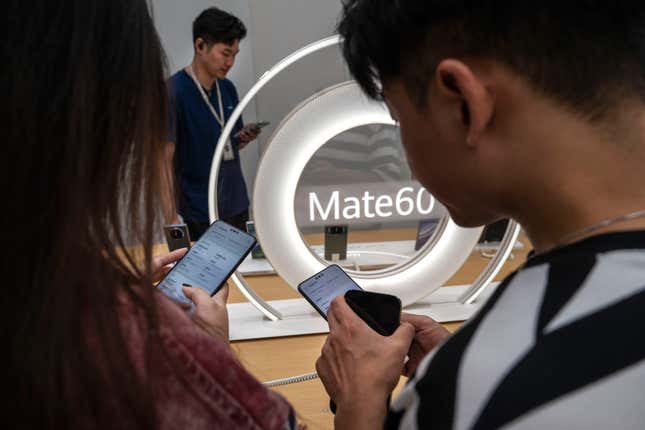
American efforts to curb advanced chipmaking in China are working, a top U.S. official said. The chip used in sanctioned Chinese tech company Huawei’s Mate 60 Pro smartphone is not as advanced as chips being made in the U.S., Secretary of Commerce Gina Raimondo said Sunday.
“What it tells me is the export controls are working because that chip is not nearly as good, ... it’s years behind what we have in the United States,” Raimondo said in an interview on CBS’s 60 Minutes. “We have the most sophisticated semiconductors in the world. China doesn’t.”
Huawei’s Mate 60 Pro, which was released in August, has a Kirin 9000s chip that uses advanced 7-nanometer processing technology, and was made by China’s top chipmaker, Semiconductor Manufacturing International Corp. (SMIC). But Bloomberg reported in March Huawei and SMIC used technology from U.S.-based Applied Materials Inc. and Lam Research Corp. to make the chips. SMIC reportedly had possession of the U.S.-made technology to manufacture the chip before U.S. companies were barred from supplying Chinese companies with advanced chips and chipmaking equipment in October 2022.
The Chinese smartphone-maker, which has been on the U.S. trade blacklist since 2019, saw a resurgence in China after releasing its Mate 60 Pro series, partially leading to a decline in Apple’s iPhone sales in the country at the beginning of 2024.
Huawei did not immediately respond to a request for comment.
Despite being on the U.S. sanctions list, Huawei can still receive advanced chipmaking tools from American companies with a special license to sell to blacklisted Chinese firms. In March, Reuters reported that Advanced Micro Devices (AMD) tried to stop Intel from selling advanced chips to Huawei, arguing that its license to do so was unfair because AMD does not have a similar license.
“I hold businesses accountable as much as anyone,” Raimondo said of companies continuing to sell chipmaking tools to China. “When I tell them they can’t sell their semiconductors to China, they don’t love that, but I do that.”